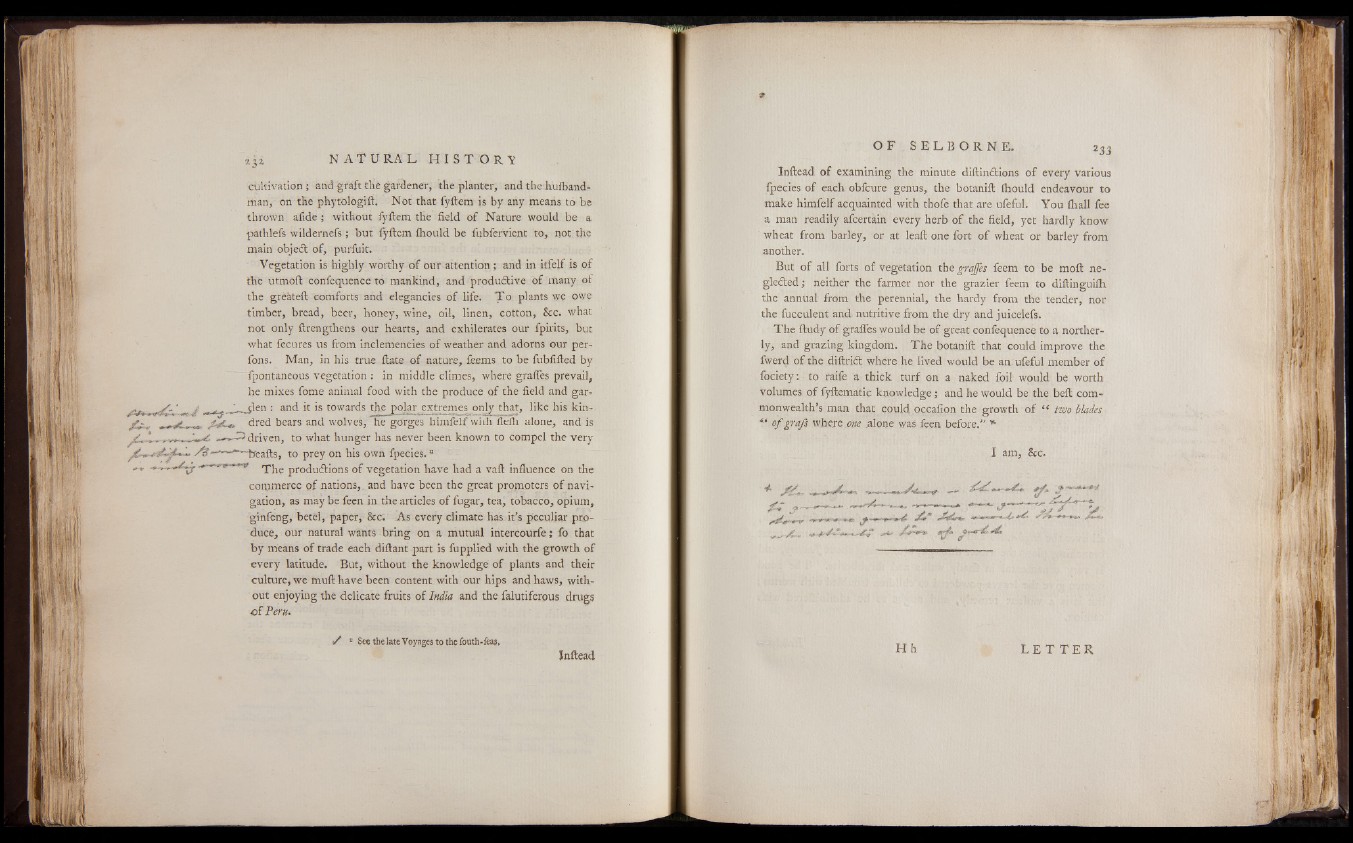
cultivation; and graft the gardener, the planter, and thehulband-
man, on the phytologift. Not that fyftem is by any means to be
thrown afide ; without fyftem the field of Nature would be a
pathlefs wildernefs; but fyftem fliould be fijbfervient to, not the
main objedt of, purfuit.
Vegetation is highly worthy of our attention ; and in itfelf is of
the utmoft confequence to mankind, and productive of many of
the greateft comforts and elegancies of life. T o plants we owe
timber, bread, beer, honey, wine, oil, linen, cotton, &c. what
not only ftrengthens our hearts, and exhilerates our fpirits, but
what fecures us from inclemencies of weather and adorns our per-
fons. Man, in his true ftate of nature, feems to be fubfifted by
fpontaneous vegetation : in middle climes, where grades prevail,
he mixes fome animal food with the produce of the field and gar-
yr> i t f s ' i / - - den : and it is towards the polar extremes only that, like his kiny
- . __a dred bears and wolves, he gorges himfelf with flefli alone, and is
/ __ ,i y . »— -^driven, to what hunger has never been known to compel the very
/ S «-*— ~“ beafts, to prey on his own fpecies. “
The produdtions of vegetation have had a vaft influence on the
commerce of nations,, and have been the great promoters of navigation,
as may be feen in the articles of fugar, tea, tobacco, opium,
ginfeng, betel, paper, &c. A s every climate has it’s peculiar produce,
our natural wants bring on a mutual intercourfe; fo that
by means of trade each diftant part is fupplied with the growth of
every latitude. But, without the knowledge of plants and their
culture, we muft have been content with our hips and haws, without
enjoying the delicate fruits of India and the falutiferous drugs
o f Peru.
y “ See the late Voyages to the Ibuth-feas,
Inftead
O F S E L B O R N E . 233
Inftead of examining the minute diftinctions of every various
fpecies of each obfcure genus, the botanift fliould endeavour to
make himfelf acquainted with thofe that are ufeful. You Ihall fee
a man readily afcertain every herb of the field, yet hardly know
wheat from barley, or at leaft one fort of wheat or barley from
another.
But of all forts of vegetation the grajfes feem to be moft ne-
gledted; neither the farmer nor the grazier feem to diftinguifh
the annual from the perennial, the hardy from the tender, nor
the fucculent and nutritive from the dry and juicelefs.
The ftudy of grafles would be of great confequence to a northerly,
and grazing kingdom. The botanift that could improve the
fwerd of the diftridt where he lived would be an. ufeful member of
lociety: to raife a thick turf on a naked foil would be worth
volumes of fyftematic knowledge; and he would be the beft commonwealth’s
man that could occafion the growth of “ two blades
“ o f grafs where one alone was feen before.” *
I am, &c.
& j -
H h L E T T E R